Earlier I have mentioned in the second chapter that there existed three different ideas about nationalism in Sindh during the period of Shah Latif. They were the following:
1. Separate nationality of Sindh, and idea of its self-determination and progress.
2. A united nationality of India, and the idea of its independence and progress.
3. A separate nationality of Muslims, and the idea of their domination and progress. On the basis of the facts and arguments presented below we can easily come to the conclusion that the ideology Shah Latif advocated among these people was that of a separate nationality of Sindh. Due to his belief in Pantheistic philosophy he was convinced of the fundamental unity of all the religious. Due to the lack of united action, in his opinion, an artificial and customary division has developed between the people. As he views it neither all the Muslims nor all the, Hindus were sincere to their religions. He expresses his thoughts in a very clear manner in his verse:
 You maintain the appearance of a Muslim, but as a matter of fact, you are an Azar. (a famous sculptor) You are a sculptor and you sell idols. You promote idol-worship, which is anathema in Islam).
You maintain the appearance of a Muslim, but as a matter of fact, you are an Azar. (a famous sculptor) You are a sculptor and you sell idols. You promote idol-worship, which is anathema in Islam). Addressing the Hindus, he says:
 You are far from being a Hindu, and your sacred thread hardly becomes you.
You are far from being a Hindu, and your sacred thread hardly becomes you. He always considered their differences senseless and deceptive, the truth about which was beyond the comprehension of intellectually blind. Shah Latif says:
 The blind men quarreled over the shape and form of the dead elephant. They failed to tell what it looks like. It is only the men with vision (spiritual insight) who can truly describe it. It is only those who possess spiritual vision who are really able to see the (truth).
The blind men quarreled over the shape and form of the dead elephant. They failed to tell what it looks like. It is only the men with vision (spiritual insight) who can truly describe it. It is only those who possess spiritual vision who are really able to see the (truth). In their opinion, the religious disputes mean no more than the blind groping in the dark, or the dogs fighting over a bone. They always profess a faith in this manner:
 You will have to develop a vision, which can help you to see the one you love. Do not seek guidance from others, because it does not please your beloved.
You will have to develop a vision, which can help you to see the one you love. Do not seek guidance from others, because it does not please your beloved. The following verse appears to expound his central thought about religion:
 This is a house, which has innumerable doors and windows, but wherever I turn my gaze, I can see only my beloved.
This is a house, which has innumerable doors and windows, but wherever I turn my gaze, I can see only my beloved. In order to see the beloved (truth) it is essential in their opinion to keep the eyes free from all blemishes. They consider being united with the beloved the object of religion and not material benefits:
 Let your eyes be touched with the eye-shade of the Oneness of God, and quit dualism and be elevated to mysticism. If you find fault in the beloved, the real fault lies in your vision. Have the strength to give your testimony for Oneness of God, and attain the position of a true Muslims. In accordance with the teachings of Islam, believing in all the prophets and their divine books, he considered as an integral part of faith. According to the thoughts expressed by Maulana Rome in the following verse, is:
Let your eyes be touched with the eye-shade of the Oneness of God, and quit dualism and be elevated to mysticism. If you find fault in the beloved, the real fault lies in your vision. Have the strength to give your testimony for Oneness of God, and attain the position of a true Muslims. In accordance with the teachings of Islam, believing in all the prophets and their divine books, he considered as an integral part of faith. According to the thoughts expressed by Maulana Rome in the following verse, is:  I have absorb the essential meanings of the Holy Qur'an while I have cast away the peripheral questions for the men of poor intellectual understanding.
I have absorb the essential meanings of the Holy Qur'an while I have cast away the peripheral questions for the men of poor intellectual understanding. He had thoroughly understood the truth about religion. Then how could he accept the idea that people belonging to one homeland, living in their humble abodes, belonging to the same tribe, and living in close association with each other are not one nation, and that they are a separate nation simply on the basis of religious division. He considered differences of religions no more than a fallacy of vision. He says:
 What you call the voice, is merely its echo. The voice and the echo are apparently two things. As a matter of they are one and the same thing, and only appear two when they are heard.
What you call the voice, is merely its echo. The voice and the echo are apparently two things. As a matter of they are one and the same thing, and only appear two when they are heard. When Shah Latif prayed for the fertility of the homeland and the prosperity of his people, he prayed for the whole nation, without having any thought of discrimination based on religion and faith.
It was due to these reasons that he could not accept the idea of a separate nationality of the Muslims, which was based on the philosophy of deism. He says:
 Diversity has come into existence as a result of oneness (of Allah). Therefore, diversity is the only the reflection of this oneness (of Allah). The truth is only one and any other idea or faith only serves to misguide. The real truth is that this universe and its diverse beauty are the reflection of only that unique being.
Diversity has come into existence as a result of oneness (of Allah). Therefore, diversity is the only the reflection of this oneness (of Allah). The truth is only one and any other idea or faith only serves to misguide. The real truth is that this universe and its diverse beauty are the reflection of only that unique being. He could never visualize that humanity, creation of one God, living like neighbors and people belonging to the same country, could be considered as a separate nation on the basis of a few customs, traditions and beliefs, although they believe in one and the same God following their different modes of worship. He expresses himself reflecting this truth in a beautiful manner in this verse:
 Everything belonging to the land of my beloved is pleasurable. If you experience to taste it with sense and wisdom, you will never feel bitterness in anything here.
Everything belonging to the land of my beloved is pleasurable. If you experience to taste it with sense and wisdom, you will never feel bitterness in anything here. He expresses himself at another place:
 All worship the same and the only beloved.
All worship the same and the only beloved. Because Shah Latif held such views about religion, he saw no difference between friend and foe. Censuring the weakness and defects of Muslim (Mullahs) and Hindu (Pundits) priests, who desired to create hatred and enmity between human beings in the name of religion, he says:
 This beauty of various aspects of nature reflects the beauty of an eternal being. However, weak-minded people can only find fault with them. They only provoke anger and hatred by creating the differences of Islam and Hinduism.
This beauty of various aspects of nature reflects the beauty of an eternal being. However, weak-minded people can only find fault with them. They only provoke anger and hatred by creating the differences of Islam and Hinduism. In the same manner, sometime in a state of ecstasy, he addresses the fanatic sectarian elements:
 If you see with some perception, all around you, you will see a reflection of truth, and you will shed all doubts from your mind.
If you see with some perception, all around you, you will see a reflection of truth, and you will shed all doubts from your mind. He knew fully well that it is quite easy to be called a Muslim, but to be really elevated to the position of perfection requires suffering and self-sacrifice. Even the prophets and the saints prayed that their life in this world might end as Muslims. However, if the present state of Muslims is viewed, Islam is confined to the Holy Qur'an and the Muslims have lost their faith. However, for Shah Latif religion signified love and affection for others
and most of the Muslims had lost its awareness. Referring to this painful situation, he says:
 It is not possible for the people to look at life with wonder. Not everyone can understand the mysteries of love.
It is not possible for the people to look at life with wonder. Not everyone can understand the mysteries of love. Shah Latif was deeply grieved and pained to see to which low level the Muslim priests (Mullah) had brought the religion. He could observe how human beings had been split into groups of sectarian antagonism in the name of God, and the entire society had become diseased as a consequence of this fallacious and poisonous teaching. Being disgusted at this deplorable state of society, he expresses himself in the following manner:
 As a result of the falsehood of the Mullah (the priest), his mother is suffering In terrible pain. He will simply be struck with shame when he discovers the ‘truth’ about God.
As a result of the falsehood of the Mullah (the priest), his mother is suffering In terrible pain. He will simply be struck with shame when he discovers the ‘truth’ about God. He possessed a complete knowledge about the incidents of the history of the Muslims. There were no limits to which Mullahs would not go in the name of Shariah and Islam. Crucifying Mansur, having Shams Tabrez flayed, having Makhdoom Bilawal crushed in the oil-expeller, hanging Sarmad on the cross, and having Shah Inayat assassinated, were those incidents, which were well-known to him. All those people were responsible for these tragic events, who claimed to disseminate the Islamic Law, and whose entire history was replete with the deeds of darkness.
These tragedies only served to prove an impediment in the propagation of Islam. The prejudiced and narrow-minded attitude of Mullahs (priests) only confined Islam, a religion befitting human nature, to merely beliefs, forms of worship, customs and a social attitude. When Shah Latif observed that the adulterers, drunkards, oppressors, usurpers and the unscrupulous exploiters of the needy and the destitute, and the men leading a life of Luxury had become the representatives of a nation, who claimed to serve as a pattern to be followed by the world, he found it absolutely impossible to accept this situation and was constrained to say.
 You claim to believe in your religious creed, but you are weak in faith. Your heart is the abode of hypocrisy, associating others with Allah. Apparently you are a Muslim but in reality you sculpt and sell idols. (Promote idol worship) The Idea of a United India
You claim to believe in your religious creed, but you are weak in faith. Your heart is the abode of hypocrisy, associating others with Allah. Apparently you are a Muslim but in reality you sculpt and sell idols. (Promote idol worship) The Idea of a United India
Although this problem originated the philosophy of pantheism and harmonized with Shah Latif’s school of mysticism as well, but Shah Latif’s far sightlessness had perceived that in the vast subcontinent of India lived the people with different faiths, social standards, languages, races and cultures, and uniting it into one nation through an artificial plan and program was a principle which appeared to be very good and attractive, but practically for a long time to come it was impossible for it to be fruitful. It was on this account that rather than an Indian united nationality he found it much easier and more practicable to espoused the idea of Sindhi nationality. He found himself still more firmly convinced of his view due to the facts stated below:
A. Due to the unbiased influence of Buddhism since the ancient times, the teachings of Guru Nanak, the preaching of Hindu saints and pious men and the non-sectarian and tolerant teaching of Muslim mystics, the Hindus living in Sindh were free from religious fundamentalism and narrow-mindedness as compared to the Hindus living in other provinces and were closer to the Muslims in their way of life.
B. The Muslims were influenced by the mystics, the fundamental principle of whose teachings was love. Moreover on the one hand having no contact with the fanatic and narrow-minded Hindus, being the majority, and on the other hand having ruled for a long period of time they were unbiased and were firm advocates of religious tolerance.
C. A small country, one language, common traditions, abundance of food, people generous and patriotic, loving, dignified and courteous: these were the virtues which were most suitable for making the people a nation without discrimination of religion and faith.
It appears that before arriving at these conclusions Shah Latif had conducted a close and deep analysis of the conditions after travelling through most of the regions of Sindh. He observed that especially the people of two different races lived in Sindh: one the Aryan race and the other Smat (Semitic race), and he found some distinguishing characteristics in these two races. He considered Baluchis as Aryans, and Samoos, Soomras and other native people belonging to the Smat (the Semitic race). Some of the tribes Shah Latif has especially mentioned in his poetry are the following:
Baluch: Sometime they have been called by the names of Aryans, Keechi, Jut and sometime Areecha. These people had migrated from Makran, Kalat, Muzaffar Garh and Dera Ghazi Khan.
Smat: This word is a combination of Samma and Soomro. The tribes of Abro, Dasro, Jareja, Lakha Rahoo, Unar, and Jakhra are the offshoots of this tribe. They were the natives of central Sindh, Kachh and Kathiawar.
The Common People: Shah Latif called these people by the names of Maroo, Sanghaar, Warehja Panhwar, Vanjara (nomads) Mallah (Batmen), Mangta (beggars), Bhaan (Jugglers) Sodha, Dhai, Rebara, Kachhi, Odh, Mahana and Mehar.
Shah Latif had developed a special attachment with the Baluchi tribe. He had closely observed their virtues of courage, determination
adherence to their pledge and the qualities of leadership. They were completely fed up with the arrogant and fascist government of Kalhora and their hypocritical policies. So he was beginning to see the signs of a change in Sindh through the Baluchis and was determined to develop self-confidence in them and give them encouragement. All the fine tunes of the poetry of Shah Latif are replete with the praise of the tales and characters of Baluchis. Some of the lines of his verse have become proverbial in the praise of the Baluchis:
 I am completely enthralled by the love of the Baluch.
I am completely enthralled by the love of the Baluch.  It is not within my power to erase the memory of the Baluch from my heart.
It is not within my power to erase the memory of the Baluch from my heart.  I realized the significance of love, only when’ I developed friendship with the Baluchi.
I realized the significance of love, only when’ I developed friendship with the Baluchi.  It is always good to enjoy friendship with the Baluchis.
It is always good to enjoy friendship with the Baluchis.  I am a low caste, how can I be equal to the racially superior Baluchis.
I am a low caste, how can I be equal to the racially superior Baluchis.  You must look at the Baluch, as I see him.
You must look at the Baluch, as I see him.  Whatever I am, it is a matter of great pride that I am the handmaid of Baluchis
Whatever I am, it is a matter of great pride that I am the handmaid of Baluchis At one place making an evident suggestive comments about the quality of political leadership of Baluchis, he says:
 No one should entertain any fear or anxiety whose leader is Ary Jam (Baluch Chief)
No one should entertain any fear or anxiety whose leader is Ary Jam (Baluch Chief) These hopes and predictions of Shah Latif were soon fulfilled. The reign of Kalhoras came to an end and the Baluchis assumed the reigns of power. He has given utterance to his old attachment with the Baluchis in the following manner:
 The Baluch Chief had won my mind, spirit and heart, the day God created this world.
The Baluch Chief had won my mind, spirit and heart, the day God created this world. He experienced extraordinary joy whenever he maintained his contact with or associated with Baluchis:
 I can feel the fragrance of Ary Jam (the Baluch Chief) coming from every branch and every tree.
I can feel the fragrance of Ary Jam (the Baluch Chief) coming from every branch and every tree.  In my eyes, there was anxiety and restlessness from the beginning, but the moment, I saw Punnu my eyes found comfort
In my eyes, there was anxiety and restlessness from the beginning, but the moment, I saw Punnu my eyes found comfort At one place he blesses and prays most sincerely for the Baluchis in these words:
 Oh God, protect Baluchis from all kinds of misfortunes and adversities.
Oh God, protect Baluchis from all kinds of misfortunes and adversities. At another place, he expresses himself about their value and martial qualities in following words:
 Warfare and military exploits are the integral part of the character of Baluchis.
Warfare and military exploits are the integral part of the character of Baluchis. To be a Baluch, in other words to be a man bearing those characteristic qualities most pleasing to Shah Latif, is not within the reach of every person. In order to develop these qualities a man requires the courage to live a life of honor rather a life of dishonor and degradation. One has to develop the sentiments of personal dignity and national pride, to remain firm and determined against any temptation, and to adopt the course of independence and truth. As in the Baluch nation, Shah Latif also observed some similar distinctive virtues in the Smat tribes, such as trustworthiness charity, generosity and adherence to the traditional values and to protect those who seek refuge. Identifying these virtues Shah Latif says:
 When the Samma Chief laid his hand on their heads, they were relieved and comforted.
When the Samma Chief laid his hand on their heads, they were relieved and comforted.  Oh Samma Chief, who is wearing the headdress, symbolizing honor there are many chiefs, but you are the one who rightfully deserves to he, crowned.
Oh Samma Chief, who is wearing the headdress, symbolizing honor there are many chiefs, but you are the one who rightfully deserves to he, crowned.  Samma Chief is anxious to demonstrate his generosity. He goes about to find out the needs of the people. He invites the poor and the needy to console and comfort them, not for a day or two but it is the usual practice of his life.
Samma Chief is anxious to demonstrate his generosity. He goes about to find out the needs of the people. He invites the poor and the needy to console and comfort them, not for a day or two but it is the usual practice of his life. Shah Latif regarded Smat as a monument to Sindhi culture and civilization, but had also come to realize that since a long time, as a result of remaining in power and living a life of luxury and pleasure, they had lost the qualities of a evolutionary character and martial spirit.
 Who is aware of the wedding of Samma Chief,
Who is aware of the wedding of Samma Chief, The section of the society, which Shah Latif has praised most, is the section of the poor society of Sindh, in which are included Sindhi farmers, sheep rearing nomads,
Doothi deserts dwellers (who mostly subsist on the seeds of a variety of grass), fishermen the people using blankets and sheets woven by themselves, semi-naked poor and the wretched people who made their home in the jungles and deserts. It was among these people that Shah Latif discovered the reflection of real spirit of Sindhi and expressed a deep sense of grief and shed tears over their poverty, homelessness, ruin, ignorance and suffering. He considered the people of Sindh and their future prosperity related to each other, and considered pains and suffering a calamity for Sindh. In the same manner, he considered their liberties and progress, a secret of the welfare and honor of Sindh. Every nation has a role to play in the reconstruction and rebuilding of the world and in his opinion. The Sindhis have to play their role in this connection, and this objective can be achieved only when Sindhis struggle to elevate to the highest level, their oldest civilization, which they have inherited through the experience of centuries. He was thoroughly aware of the fact that the Sindhis were much more backward as compared to other nations. The society consisted mostly of a nomadic way of life, and the level of national production was great deal lower as a compared to other nations. However, inspite of this backwardness he always made an effort to protect them against an inferiority complex as a nation, by encouraging them to feel a sense of pride about the little they possessed. He fully understood that until and unless the nation developed an element of national honor and dignity, they would not be able to develop self-confidence, and would fail to convey their message to the world and Sindhis will continue be slaves of others politically, economically and intellectually.
Shah Latif has highlighted this theme in detail in "
Sur Maivi". In this, he has used the metaphor of Maroo describing the people of Sindh. He has compared the rule of foreigners with the prison of Umer Kot, has called the ruling class by the name of Umer Soomro, and has compared the independence of the people with the life of picking desert flowers in Malir. In the same manner he has called the true representatives of the Sindhi people and the patriotic members of society who understand the real value and worth of freedom, and really have a sympathy for the backward people, by the name of Marvi. Shah Latif had a good reason for his conviction that Sindhis, despite their being the victims of backwardness, are superior to other nations of the world. He possessed a complete knowledge and consciousness of economic backwardness, but rather than considering it as a fault; he describes it as a reality of their situation. He says:
 Marvi says ‘We have come from a country where people are not fortunate enough to have adequate garments.Even during a festive occasion their condition remains the same."
Marvi says ‘We have come from a country where people are not fortunate enough to have adequate garments.Even during a festive occasion their condition remains the same." At one place, he describes the farming life of Sindhis in the following manner in the words of Marvi:
 My companions plucked the fruit from the sycamore tree. In the same manner, they ate fruits, though not very palatable, even on celebrations. Thus, I used to eat the seeds of the beans in the homeland of my dear ones.
My companions plucked the fruit from the sycamore tree. In the same manner, they ate fruits, though not very palatable, even on celebrations. Thus, I used to eat the seeds of the beans in the homeland of my dear ones. Describing their garments Shah Latif says:
 Blessed are the women of my homeland, for whom the desert serves as a dress. The honor of my ancestors is eating the fruit growing in the desert my people, the desert dwellers, wander in the deserts with absolute freedom. My people have given me the dowry of privation and love of poverty.
Blessed are the women of my homeland, for whom the desert serves as a dress. The honor of my ancestors is eating the fruit growing in the desert my people, the desert dwellers, wander in the deserts with absolute freedom. My people have given me the dowry of privation and love of poverty. He draws the picture of their general condition in the following manner:
 The land in which they live has no vegetation to speak of. They drink the rainwater and the garments that cover their person are the sheets woven from the wool. Clumps of trees serve as their home, which have no chance of crumbling. Oblivious of themselves, they lead a life of freedom from anxiety. Umer, they are not obdurate but dauntless. You should never try to hurt them.
The land in which they live has no vegetation to speak of. They drink the rainwater and the garments that cover their person are the sheets woven from the wool. Clumps of trees serve as their home, which have no chance of crumbling. Oblivious of themselves, they lead a life of freedom from anxiety. Umer, they are not obdurate but dauntless. You should never try to hurt them.  Everyday they go into the forests, and gather the grain, which grows in wilderness, and subsist upon it. They dry the green grass, and cook its seeds like rice. Umer, they do not value your delicious dishes equal to the simple fare they consume.
Everyday they go into the forests, and gather the grain, which grows in wilderness, and subsist upon it. They dry the green grass, and cook its seeds like rice. Umer, they do not value your delicious dishes equal to the simple fare they consume.  They carry on their heads baskets, big and small and they perspire from top to toe. Their feet are encrusted with dusts. This is the distinction of my desert dwellers. I can recognize them by their gait.
They carry on their heads baskets, big and small and they perspire from top to toe. Their feet are encrusted with dusts. This is the distinction of my desert dwellers. I can recognize them by their gait. In the same manner expressing his deeply felt sentiments about desert dweller, Werejhas and Panhwares, the people of Sindh, who suffer at the hands of others because of their poverty, who labor days and nights in the service of others, he speaks in the following manner:
 Addressing the ruler Umer he says,That he told the people where his desert dwellers pass their life. My people live in a land where mango trees bear fruit in their season. They gather fodder for their cattle. There is abundance of fruits and honey in my land. By God, everyone relishes the tastes of these gifts of nature. Then why should not Marvi go to such a land instead of living in palaces here.
Addressing the ruler Umer he says,That he told the people where his desert dwellers pass their life. My people live in a land where mango trees bear fruit in their season. They gather fodder for their cattle. There is abundance of fruits and honey in my land. By God, everyone relishes the tastes of these gifts of nature. Then why should not Marvi go to such a land instead of living in palaces here. Then he says:
 My countrymen are happy in this season. They remain close to their fences. The plains are filled with rainwater. Their spirit is refreshed when there is plenty of rainfall.
My countrymen are happy in this season. They remain close to their fences. The plains are filled with rainwater. Their spirit is refreshed when there is plenty of rainfall.  Blessed are the wells of my homeland, which satisfy the thirst of my people.
Blessed are the wells of my homeland, which satisfy the thirst of my people.  My people are happy in their homeland and pleased with grazing their cattle wild flowers and tree leaves. I love being busy in my work and attach little value to colorful garments, I am anxious to see my countrymen. When I reach there, I would love to wear a milk-white headdress. My spirit is anxious to see its beloved.
My people are happy in their homeland and pleased with grazing their cattle wild flowers and tree leaves. I love being busy in my work and attach little value to colorful garments, I am anxious to see my countrymen. When I reach there, I would love to wear a milk-white headdress. My spirit is anxious to see its beloved.  The people in my land of Thar are completely free. There is no restriction nor any tax is imposed upon them. They pick and bring the red deserts flowers from the tree and find a great pleasure in their arrangement. My desert dwellers are unique and my Malir is bright and beautiful.
The people in my land of Thar are completely free. There is no restriction nor any tax is imposed upon them. They pick and bring the red deserts flowers from the tree and find a great pleasure in their arrangement. My desert dwellers are unique and my Malir is bright and beautiful. Shah Latif is not impressed by the splendor, awe and the authority of the ruling class, rather he feels proud of the nomadic civilization of the people of Sindh. Thus comparing them, he expresses his sentiments in the following verses:
 The Panhwar women, my companions, never wear silk dresses. When they dye their hand-woven woolen covering, those sheets look much more beautiful and attractive than your shawls. These coverings which they use have a much greater value and importance as compare to the silken dresses and the garments made of rich material. Oh Umer Soomro I considered my rough sheet and covering of far greater value and importance than the royal garments. The covering, which my elders have given me to wear, is impossible to remove. This covering is the symbol of my honor.
The Panhwar women, my companions, never wear silk dresses. When they dye their hand-woven woolen covering, those sheets look much more beautiful and attractive than your shawls. These coverings which they use have a much greater value and importance as compare to the silken dresses and the garments made of rich material. Oh Umer Soomro I considered my rough sheet and covering of far greater value and importance than the royal garments. The covering, which my elders have given me to wear, is impossible to remove. This covering is the symbol of my honor.  I shall never don the garments of silk and rich material. I wish your rich coverings with work of silver and golden thread to go to hell. I am restless to meet my people. With great love, I shall wear the milk-white covering once I reach my homeland. My soul is anxious to meet my beloved.
I shall never don the garments of silk and rich material. I wish your rich coverings with work of silver and golden thread to go to hell. I am restless to meet my people. With great love, I shall wear the milk-white covering once I reach my homeland. My soul is anxious to meet my beloved.  The traditional filaments of my beloved’s engagement are more valuable for me than the golden bangles, and each stained of my rough garment is worth millions. The one who has turned down millions of rupees has no value for him. My whole self is engulfed in the fragrances of my beloved’s love.
The traditional filaments of my beloved’s engagement are more valuable for me than the golden bangles, and each stained of my rough garment is worth millions. The one who has turned down millions of rupees has no value for him. My whole self is engulfed in the fragrances of my beloved’s love.  In pursuance of our tradition, black strands of thread are tied round my wrists. Gold stands for mourning in our culture. Even the experience of starvation in the company of my companions is a matter of pride; in fact, it is the source of pleasure.
In pursuance of our tradition, black strands of thread are tied round my wrists. Gold stands for mourning in our culture. Even the experience of starvation in the company of my companions is a matter of pride; in fact, it is the source of pleasure. Shah Latif has given the people of Sindh the message of freedom from the slavery of the rulers, snapping of chains, destruction of the oppressive rule, and the ultimate triumph of the people’s revolution. He has counseled people to be loyal and determined and those who are suffering now; he has consoled and comforted them by predicting a happy future. Giving them strength and courage, he says:
 Marvi, do not set your disheveled hair in palaces. Until you are in Malir, leave your hair as they are. One who believes herself a apart of the people of Malir, how can she live in palaces.
Marvi, do not set your disheveled hair in palaces. Until you are in Malir, leave your hair as they are. One who believes herself a apart of the people of Malir, how can she live in palaces.  Oh Umer how the disgraced and dishonored women, like me can wear clean garments, because their husbands have to been the abuses hurled at them. How the women who fail to protect the honor of their husbands can find peaceful sleep.
Oh Umer how the disgraced and dishonored women, like me can wear clean garments, because their husbands have to been the abuses hurled at them. How the women who fail to protect the honor of their husbands can find peaceful sleep.  My husband passes his days in the desert and wilderness, then how can I sleep in a comfortable bed.
My husband passes his days in the desert and wilderness, then how can I sleep in a comfortable bed.  Marvi, guard your chastity in the state of your confinement One day you will definitely go to Malir.
Marvi, guard your chastity in the state of your confinement One day you will definitely go to Malir.  My chains have wasted my body. Due to the oppressive measures used by Umer, my body has become emaciated. I appeal to my companions to pray that I may have the strength to maintain my chastity.
My chains have wasted my body. Due to the oppressive measures used by Umer, my body has become emaciated. I appeal to my companions to pray that I may have the strength to maintain my chastity.  The rains have come and I can see the glare of the lightening in the clouds. I continue to shed tears remembering those I love If they come to me, I shall indeed be liberated from my misery.
The rains have come and I can see the glare of the lightening in the clouds. I continue to shed tears remembering those I love If they come to me, I shall indeed be liberated from my misery.  I have survived with the hope that one day the prison walls around me will crumble and I shall again be free.
I have survived with the hope that one day the prison walls around me will crumble and I shall again be free. Without discrimination of Hindus and Muslims, Shah Latif has regarded all the people of Sindh as Sindhis. In his poetry, the characters he has praised were mostly Hindus. Notable among them were Hindu Raja Diach, Lakhu Phulani, the Hindu Chief of Sindh, Rana Sodha, the Rajput of Thar, Momal, who was a Hindu Rani and Sassi who also belonged to the Hindu community. Besides these heroes and heroines, he mentions in his poetry Odh, Jareja, Rebara or Rebari, Jogi, Babu, Sanyasi and Aadesi, all of whom, were Hindus. Shah Latif has showered praises neither on Muhammad bin Qasim nor Mahmud Ghaznvi. Rather the reader will find nowhere in his poetry the mention of these conquerors or conquerors like them. If the religious governments of Aurangzeb or Kalhoras had influenced him, at least he would have made their names part of his poetry, but there is hardly any mention of either of these two. He has, no doubt, praised the Baluchis
but it was mainly due to the fact, that the Baluchis wrested power from the hands of Ka1horas, and in the place of their government based on religious fanaticism, they established religiously tolerant government. Now here in his poetry does Shah Latif make a Maulvi or Mullah as the subject of praise. On the other hand, he has shed tears remembering the pilgrims to Hinglaj, the bathers in Ganges and those who blow their horn as a form of worship.



























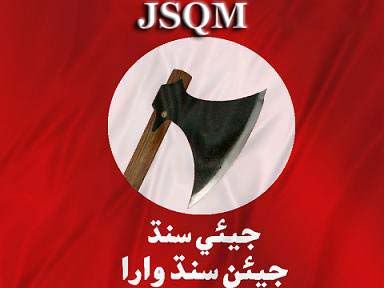
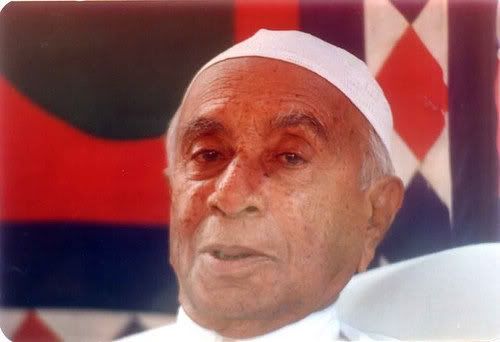
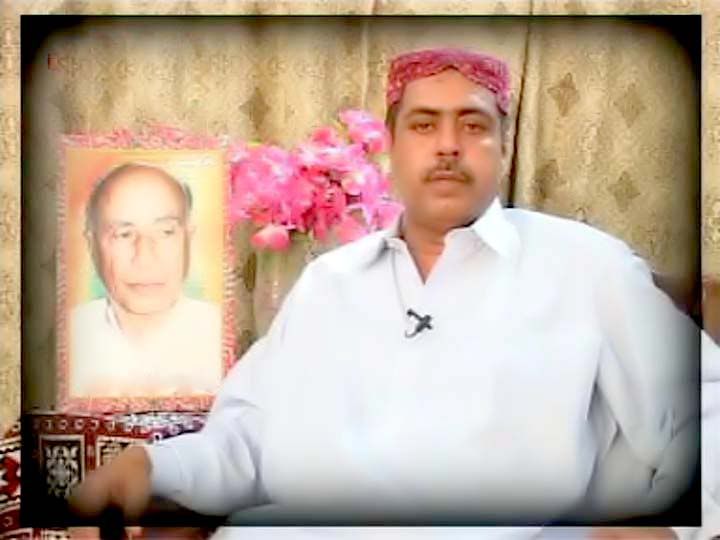
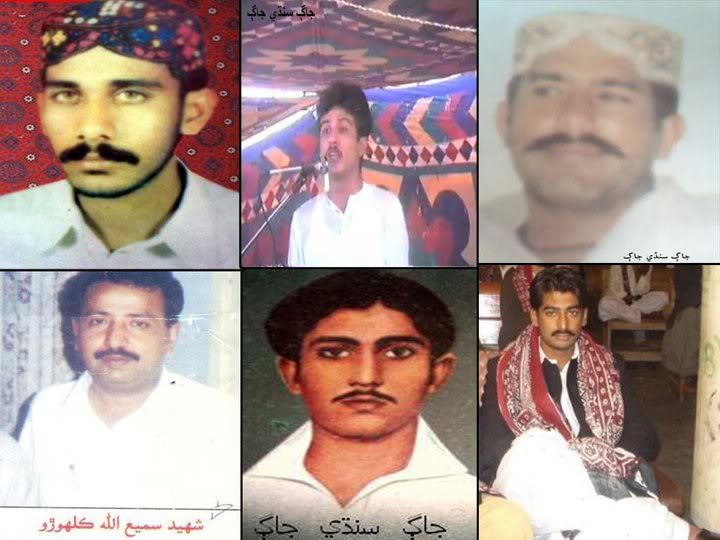
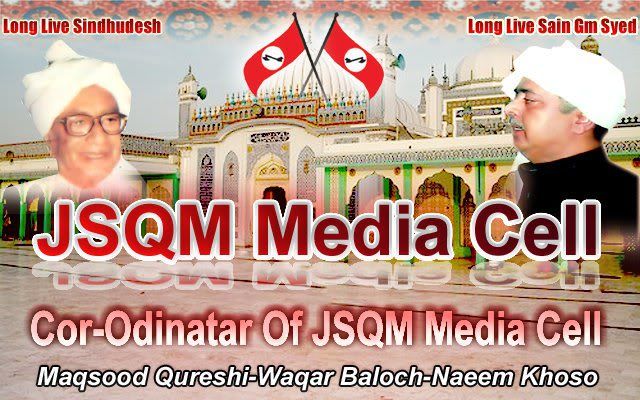



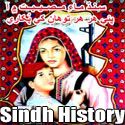





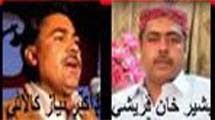
Currently have 0 comments: